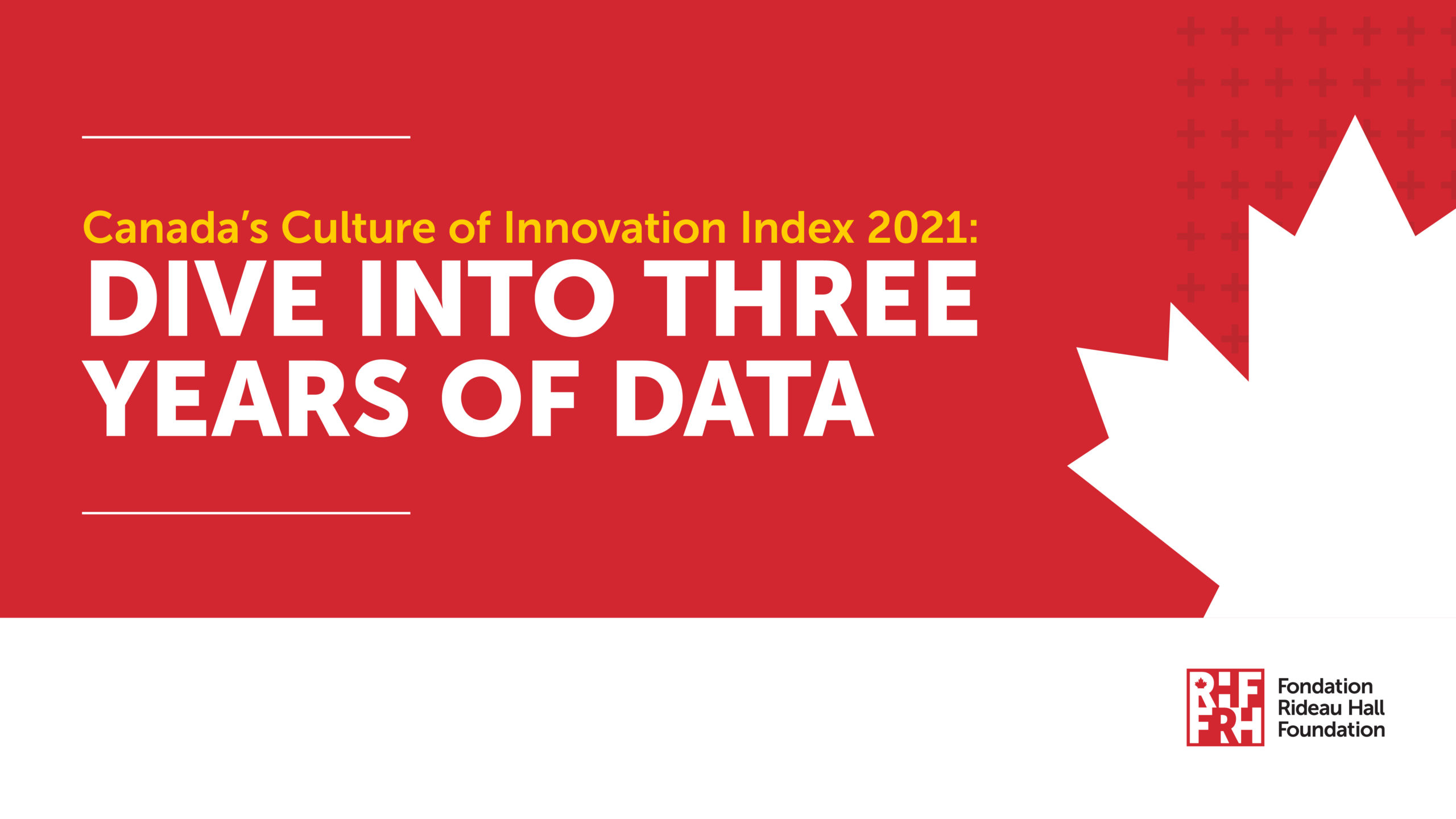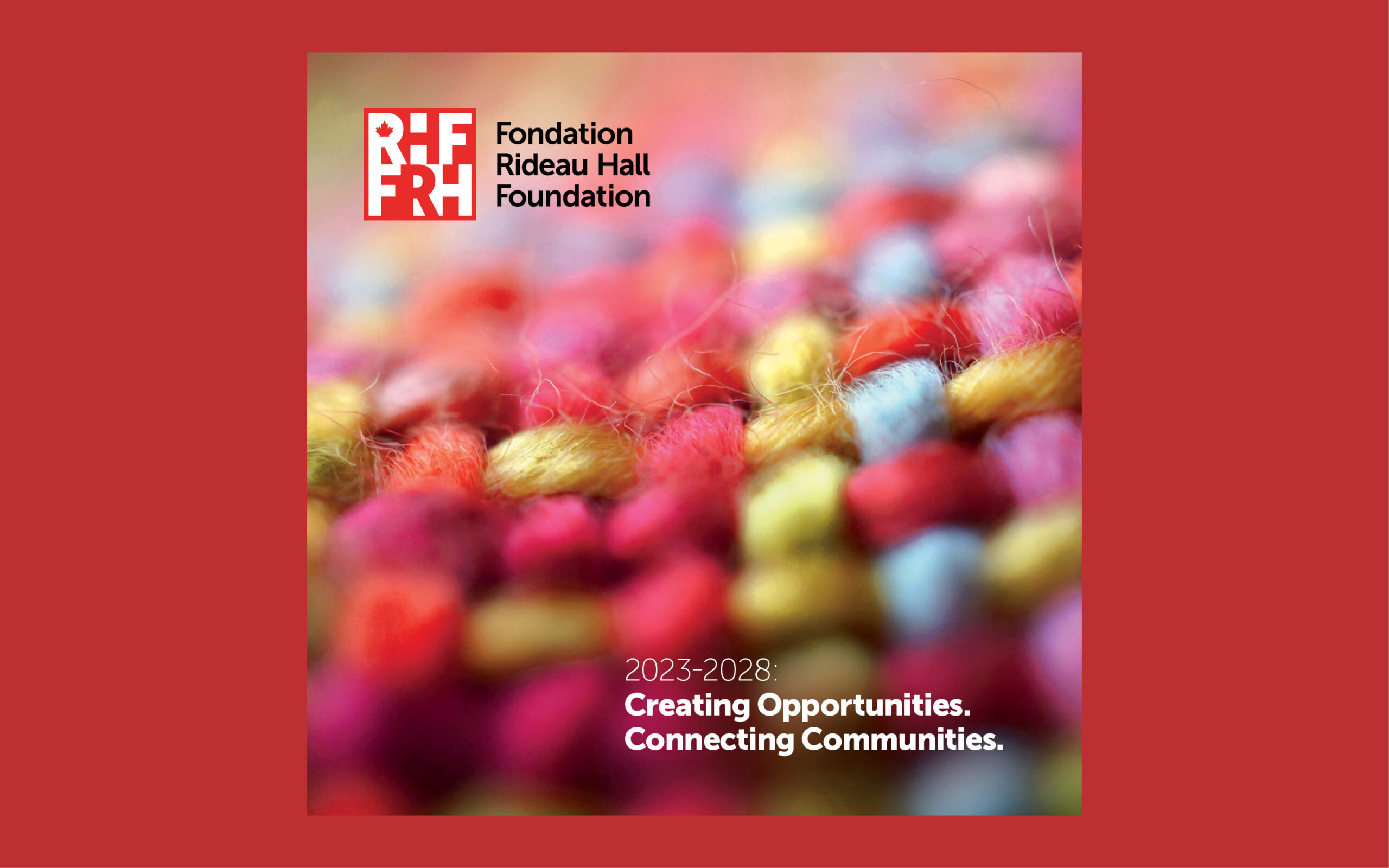By Teresa Marques
President and CEO of the Rideau Hall Foundation
Innovation is always an essential ingredient for well-functioning societies and economies, but especially as our country enters a period of recovery and “building back”. How innovative is Canada as it rises to meet this challenge? The usual metrics to consider might include funding for R&D, the number of patents generated, productivity, and the ability to acquire or retain talent in high-innovation sectors of the economy. While these are certainly valuable, the Rideau Hall Foundation (RHF) is particularly concerned about an often-unspoken key ingredient in making Canada more innovative: our culture. What do we believe and what do we value when it comes to innovation?
The RHF’s most recent Culture of Innovation Index findings reveal important opportunities for Canada to build on unexpected outcomes from the pandemic as well as finally address longstanding systemic problems that hamper our ability to innovate in ways that are unproductive and unfair.
For three years, the Index has taken the pulse of Canadians when it comes to how they think and feel about innovation. Despite a year of disruptions, including unpredictable lockdown periods and a recession, this year’s Culture of Innovation Index remains relatively steady.
What’s the story in that, you ask? Well, it’s heartening to see that Canadians continue to value innovation. In fact, 44% of Canadians want innovation to drive economic growth, up five percentage points compared to last year. Specifically, many see it as an engine for the common good, fueling not only economic growth but also healthier people and a cleaner environment.
So, if what we believe about innovation has come through the pandemic essentially intact, how do avoid the risk of complacency and seize this opportunity to address our society’s problems, making sure that Canada’s commitment to innovation succeeds because it is inclusive of all Canadians?
Here are the top four key findings of this year’s Culture of Innovation Index:
1) Public and private organizations alike must continue the momentum.
Not surprisingly, the Index shows that Canadians recognize that this has been a year of increased innovation. 62% of Canadians recognize their own communities have had to adapt and change – in other words, innovate – during the past year. More than half also say they’ve personally adapted to find new ways of completing their everyday tasks, especially using technology.
There’s momentum to build on here, especially for the private sector. Sixty-nine percent of Canadians, more than in previous years, are looking to business to drive innovation. That includes multinational companies across sectors, but also small businesses and start-ups.
2) Long-term success in innovation will take addressing disparities now.
As confirmed in this year’s Index results, not all of us have been affected by the pandemic in the same way. Women, Black, Indigenous and Asian people in Canada report facing greater employment concerns, personal finance challenges and emotional strain than the general population because of the pandemic. The pandemic’s negative consequences have also had a disproportionate impact on Gen Z Canadians, which is concerning when it comes to future innovation.
Digital inequity also continues to be a barrier to innovation. More than a quarter of Canadians report not having adequate access to technology, either because of finances or where they live. To truly unlock the innovative potential of all Canadians and achieve equitable participation, we must work together across sectors to ensure everyone has the tools and skills they need to function effectively in the digital world. Through the RHF’s new program, Catapult Canada, we’re providing funding for youth-serving organization Northern Youth Abroad to run a pilot project that will connect Indigenous students from across the NWT, Nunavut and the Yukon to online instruction, as well as academic and other supports at Camosun College in British Columbia.
3) We need to broaden our perspectives.
Canadians value diversity’s role in innovation. Most (72%) say it’s important to allow different voices and perspectives to be heard when trying to solve a problem or come up with new solutions. The same percentage agree that being exposed to gender-diverse perspectives from all genders is important.
At the same time, though, we could be doing more to broaden our perspectives. For example, only about one in three Canadians actively seek out opportunities to be around others with different ethnic or cultural backgrounds.
4) We need to show what Canadian innovation truly looks like.
Canadians still lack exposure to stories of homegrown innovators and inventions. Nearly half say they don’t hear stories about Canadian innovators and innovation in the media (47%) or at school (46%) – a challenge we must address if we’re to inspire greater innovation moving forward.
Specific groups in particular – women, Gen Z, Indigenous, Asian, and Black Canadians – have an appetite to see innovators who “look like me.” This is a reminder that representing our diverse communities appropriately is important to our recovery and long-term success as a country. It matters because telling stories has the power to inspire us to do better; sharing them helps bring us closer together.
At the Rideau Hall Foundation, we will continue to spotlight and celebrate Canadian success stories and inspire the next generation of dreamers and doers. But stories alone are not enough. They need to be paired with real financial resourcing, and access to the right tools and mentorship, starting at a young age. Ingenious+, the RHF’s new national innovation prize program for youth 14-18 years old across the country, is one way of helping to make this objective a reality.
I hope to see leaders across sectors, from business to government and non-profits, dive into this year’s Culture of Innovation Index data and use it to guide meaningful action. Together, we can not only sustain our current culture of innovation but foster an even stronger and more inclusive one.



